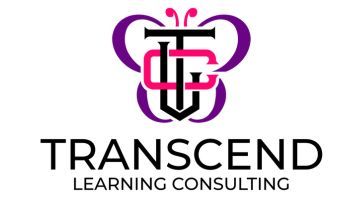Why Personal Leadership Is a Force Multiplier for Impactful Coaching
Jun 18, 2025
Total reading time: 5 mins
You are your first coaching client. You are your first follower. How you lead yourself shapes how you will lead others.
Your most powerful coaching and leadership asset is your ability to lead yourself well. This isn’t a soft skill, it’s a strategic foundation that fuels your potential to make a significant impact in your coaching and leadership role. It is what makes your efforts credible, authentic, influential and impactful. Whether you're an instructional coach, teacher leader, school leader, or instructional specialist, the catalyst for your impact is not found in your title, positional power, or toolkit of strategies, it's found in your capacity to effectively lead yourself.
So What Exactly is Personal Leadership?
What does it mean to “lead yourself?” If your response jumps to navigating daily responsibilities and decision making, that’s actually just scratching the surface.
Personal leadership (also called self-leadership) dives much deeper. It's about cultivating your inner compass and self-improvement system through a continuous process of deep self-awareness, self-knowledge, and self correction. This involves honestly examining your beliefs, inner narratives, emotions, strengths, and blindspots; all the forces shaping your behaviors and actions. It’s about taking ownership of your personal growth, actively seeking ways to improve yourself through new knowledge, skills, and mindset shift. It's the commitment to the intentional mastery of self, for the benefit of self and others.
At its core, personal leadership is about:
- Self-belief and owning your power - trusting your capabilities and recognizing the unique talents and strengths you have to offer.
- Emotional regulation - recognizing and managing your feelings effectively while extending compassion to yourself, especially during challenges.
- Growth mindset - embracing both discomfort and courage to push beyond your comfort zone to pursue your full learning and growth potential.
- Intentional self-direction - making deliberate choices that align with your convictions and goals.
Why Personal Leadership is a Force Multiplier
A force multiplier is something that dramatically amplifies your efforts and impact. Personal leadership does exactly that, transforming how others experience you and your guidance.
Coaching is relational and deeply human work. When you prioritize personal leadership, you commit to being reflective, emotionally resilient, and adaptable in pursuing your highest potential. This isn't about striving for perfection, but about showing up as your most authentic, growing self.
Consider the powerful ripple effect this creates:
- When you openly model a growth mindset by discussing your own learning challenges, teachers feel safer to be vulnerable about theirs.
- When you intentionally acknowledge and regulate your emotions during stressful encounters, you provide a clear blueprint for others to follow.
- When you demonstrate self-compassion after making mistakes, you give everyone permission to be human, learn, and grow too.
This isn't just a collection of good habits; it creates a compounding effect. Your authenticity makes people more receptive to your feedback and guidance. Your emotional regulation builds the psychological safety necessary for trust. Your transparent growth journey makes your coaching and leadership credible and inspiring. Together, these internal strengths can exponentially increase your influence and impact.
The Leadership Gap That’s Limiting Your Impact
Here's an uncomfortable truth: your capacity to lead others is often a direct reflection of how you lead yourself. If you struggle to extend patience and compassion to yourself, how authentically can you offer it to others? If you don't truly believe in your own capacity for growth, how convincingly can you inspire others to stretch beyond their comfort zones? This is the root of a significant, yet often underdeveloped, leadership gap among educational leaders, (especially newly transitioning leaders).
There's a prevailing assumption that stepping into a leadership role automatically equips you to lead adults. However, being an effective teacher doesn't automatically prepare you for the mindset, approach, and skills required to effectively lead and coach other adults. Without a strong foundation in personal leadership, leaders can find themselves trapped in a cycle of feeling unprepared, chronically overwhelmed, and stuck in unproductive patterns that undermine their impact.
The Inner Work That Fuels Your Outer Impact
Your capacity to coach, influence, and lead for impact doesn't start with frameworks, strategies, or techniques, it starts with you. While these tools support your efforts, they aren't the source of your effectiveness. That source lies in your commitment to inner work, particularly the dynamic duo of self-awareness and self-knowledge.
- Self-awareness helps you understand how your thoughts, emotions, and behaviors play out in real time, affecting your actions and relationships.
- Self-knowledge goes deeper, helping you recognize the patterns, beliefs, and past experiences that truly shape who you are and how you show up.
Together, they form the bedrock of strong personal leadership. If you haven't learned to lead yourself through self-examination and continuous self-improvement, your external leadership will always have a ceiling. Your inner work fuels your outer impact.
Three Ways to Strengthen Your Personal Leadership
- Establish a daily or weekly check-In practice: set aside quiet moments to build your self-awareness muscle. Ask yourself: How did I show up today? What challenged me? What did I learn about myself? What will I do differently tomorrow? Consistent reflection grows clarity .
- Define and live your values: clarify the 3-5 core values that regularly guide your decisions. Then audit your daily actions: are you living in alignment with these values? For example, if integrity is value your action might be: "I will ensure my actions match my words in every interaction this week."
- Audit and challenge your internal narratives: pay attention to the stories you consistently tell yourself about who you are, what’s possible, and how others perceive you. Create a thought log that includes the date, the event that preceded the thought (if applicable), and the actual thought. Label each thought as "Empowering" or "Limiting". When you identify a limiting belief, reframe it into an empowering truth. For instance, if you catch yourself thinking, "I not good enough to be the leader of this project," reframe it to, "I have the capacity to learn and grow. What do I need to know and how can I acquire that information?"
Personal leadership acts as a force multiplier for impactful coaching and leadership. When you intentionally focus on leading yourself well and your personal development, you expand your capacity to effectively influence and support others to develop themselves.
Stay connected!
Join our Beyond Coaching newsletter to receive valuable insights, pro tips, and actionable strategies to sharpen your personal leadership skills and coaching practice.
We hate SPAM. We will never sell your information, for any reason.


